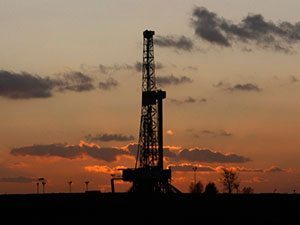
[miningmx.com] – TIME will tell if ambitious plans by Australian-listed firm, Sunbird Energy, to pipe gas from the Ibhubesi gasfield 70km off the Cape peninsula in the Atlantic Sea will receive the support of Eskom and the South African government.
Kerwin Rana, executive chairman of Sunbird Energy, said the company has a term sheet for a gas sales agreement signed with Eskom which will form the basis of a capital raising exercise of between R10bn to R20bn.
The risk of dealing with Eskom, however, is whether the parties can keep to the schedule. Rana, who acknowledged Eskom’s current woes are a risk, hoped to have the agreement signed this year. If signed, some 30 billion cubic feet (Bcf) of gas from Ibhubesi will be piped to Eskom’s Ankerlig power station for up to 15 years from 2018.
“We can’t escape the risk of scheduling with Eskom,’ Rana said in an interview. “What I would say is that we’ve been busy with it for some time and there’s a very detailed arrangement in the technical, commercial and legal space,’ he said.
“The process will be very intense of longer than a month,’ he said, adding that the Eskom board would have to approve the agreement.
Currently four of Eskom’s top executives, including its CEO, Tshediso Matona, are suspended whilst Eskom oversees an inquiry into activities that include its capital project planning, cash flow problems, coal procurement and the poor performance of its generation division.
Another Australian company, Waterberg Coal Company, has long experienced the difficulty of winning a supply agreement from Eskom.
In fact, its coal sales agreement has been pending since last year when Eskom raised objections to the coal qualities. At stake is some A$35m in debt restructuring that WCC is unable to do until it has clarity from Eskom. The firm’s stock was voluntarily suspended in March.
In principle, however, Sunbird Energy’s project has the potential to transform the regional economy.
According to Rana, setting down the infrastructure which other gas producers could use, as well as supplying some 1,200MW of power to Ankerlig, equal to five of its eight units, could be akin to the effect of gas discoveries in western Australia.
Australian began gas production from the North West Shelf Fields in 1984 with a 1,600km pipeline funded by the State Government of Western Australia.
Roughly 20 years later, more than A$100bn has been invested to date in four liquified natural gas projects which will make Australia the world’s largest LNG exporter by 2018, overtaking Qatar.
The economic drip down effect is the creation of 20,000 direct jobs, 4,700km of transmission pipelines across the state feeding a multitude of businesses, and generation of an estimated A$5bn in taxes and royalties a year. Roughly 70% of Australia’s electricity is supplied by gas.
Set against the recently withdrawal of Shell from South Africa’s shale gas exploration project in the Karoo, Sunbird Energy’s project ought to rank highly on Eskom’s worry list as well as the development funding institutions (DFIs) that Rana has been approaching, such as the Industrial Development Corporation. “We’ve been to see them already,’ he said.
Rana hoped to raise the funding this year but investors, even DFIs, get anxious about the business environment such as regulatory certainly, especially as there’s been questions about whether legislation relating to oil and gas, currently housed in the Mineral & Petroleum Resources Development Act, (MPRDA) may be separated with new provisions that could see the state increase its stake to more than 50%.
Rana insisted Sunbird’s Ibhubesi project is safe from state tinkering.
“A production right has been granted for 25 years. It is stable in all of its provisions in terms of black economic environment (BEE) and royalties as well as how state participation works,’ said Rana who added that PetroSA has a 26% stake in the project in line with MPRDA provisions.
“All of that is established and clear and locked in. The production right was granted on basis that we comply and we don’t anticipate any changes to the production right,’ he said.
“We are speaking to development and commercial banks locally and internationally,’ said Rana. “With a binding gas sale agreement, it [the project] becomes bankable from funding point of view. It will be a combination of debt and equity,’ he said.
“It is hard to fund exploration, but this is slightly different. The exploration and appraisal has been done. That money has been spent. We’re now securing supply to very motivated customer [Eskom],’ said Rana. How motivated remains to be seen.











